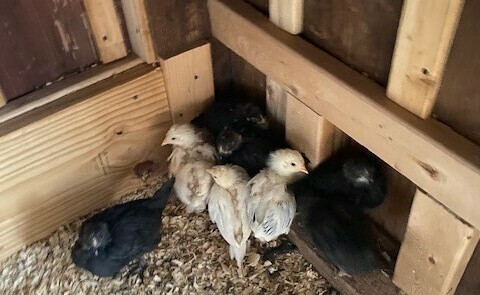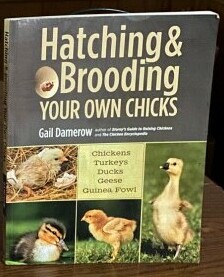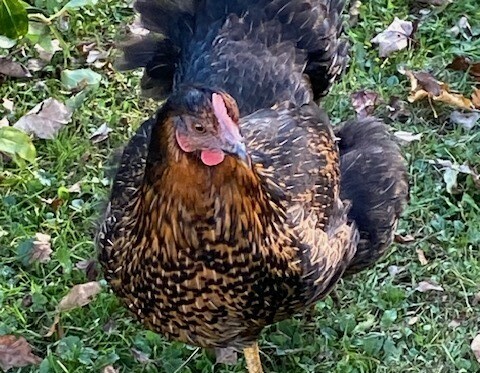
The answer is that there is only one downside, in my opinion, and that is that you don’t get little baby Sex Links.
Hello everyone! Have you ever found yourself pondering the potential pitfalls of hatching Sex Link chicken eggs? If so, you’re not alone.
Many folks worry about the outcomes of such an endeavor. However, what actually happens is that you end up with an interesting and unique blend of their parent breeds.
How cool is that?
Hi, I’m Dave. I’ve been keeping chickens since 2010 or so. I don’t remember exactly when I got bit by the chicken bug, but I enjoy almost everything about them, so I blog about them and sell chicken-related items on my journey. Please enjoy the blog and don’t be put off by the commercialism. My aim is education, not monetization. Let’s move along…
The Misconception
There’s a prevalent belief among many in the chicken-raising community that hatching Sex Link chicken eggs is fraught with downsides. The primary concern? The offspring won’t inherit the desirable Sex Link traits, leading to a mixed flock without the guaranteed sex identification at the hatch that Sex Links provides.
But is this really a downside?
Isn’t that half the fun of hatching your own eggs? To see what adorable little creature pops out in 21 days, give or take a day or two?
Whether you breed a pure Rhody Red with a pure Barred Rock or you breed a Sex Link to your rooster, you’re still going to end up with males and females that you are going to have to figure out how to deal with. So why worry about any downsides to hatching your own chicks?
What are Sex Link Chickens?
Before we debunk myths, let’s clarify what Sex Link chickens are. These birds are the result of crossbreeding two different purebred chickens, resulting in offspring whose sex can be determined immediately at hatch based on their color.
This trait is highly valued for its convenience, especially for those looking to maintain a balanced flock or avoid the noise and aggression sometimes associated with roosters.
I have two types of Sex Links, Black and Buff, aka Black Star and Golden Comet. I hatched some of the Black Star eggs and some Light Brahma eggs just for fun. I had an 89% hatch (8 out of 9) and wound up with three Light Brahmas and five Barred Rocks… I think.
That’s awesome for me because until now, I didn’t have the barred coloring in my flock. I have arrived!
When you hatch Sex Link eggs, the chicks you get are not Sex Links themselves but rather a blend of their parent breeds. This outcome is often viewed as a downside, but let’s explore why it shouldn’t be.
Drawing from the wealth of knowledge shared by seasoned breeders and my own journey in chicken husbandry, it’s clear that the perceived downside of hatching Sex Link eggs is actually a misconception.
The chicks produced are a return to the parent breeds, each with their own set of valuable traits. Unfortunately, I don’t know how many roosters are in this bunch, so they can’t all stay. I already have two roosters and don’t need more.
One of the Brahmas is quite aggressive, so it might be a roo.
Research and anecdotal evidence alike support the notion that the parent breeds of Sex Link chickens—often breeds like the Rhode Island Red, Sussex, or Plymouth Rock—are themselves highly desirable.
They’re known for their hardiness, excellent laying capabilities, heavy bodies, and friendly dispositions. These traits make them good dual-purpose birds – good for eggs and the table alike when the time comes.
While it’s true that you won’t get the immediate sex identification benefit with these offspring, the advantages of reintroducing purebred characteristics into your flock can outweigh this aspect.
It’s important to approach chicken breeding with an open mind, recognizing the potential for unexpected benefits like color diversity in your flock. Passers-by love to see multiple colors in a flock. It adds a picturesque aspect to your yard.
Many backyard chicken keepers, myself included, have found joy in the surprise of hatching Sex Link eggs.
The parent breeds bring diversity to the flock, often enhancing the flock’s overall health and egg-laying consistency. Plus, the journey of discovering each chick’s personality and traits as they grow can be incredibly rewarding.
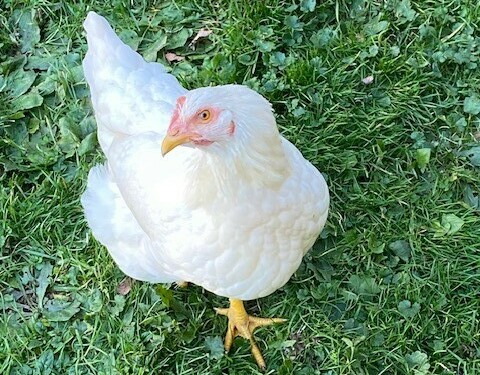
So, what is the downside of hatching Sex Link chicken eggs?
If we’re speaking strictly about the loss of sex linkage in the offspring, then yes, there’s a technical downside. However, when we consider the bigger picture—the reintroduction of valuable parent breed traits into our flocks—the supposed downside quickly transforms into an opportunity.
By enjoying the outcome of hatching Sex Link eggs, we open our coops to the diversity of the parent breeds. This, in turn, enriches our chicken-raising experience, offering us not just layers of pets but a deeper understanding of chicken genetics.
I encourage you to share your thoughts, experiences, or questions in the comments below. Have you hatched Sex Link eggs before? What was your experience like? Let’s continue the conversation and learn from each other’s journeys in the wonderful world of chicken keeping.
We can all grow together by fostering an education and community environment. The journey of raising chickens is as much about learning and sharing knowledge as it is about the chickens themselves.
If you are interested in Sex Link chickens and want to learn more, check out this post on the Backyard Chicken forum that tells you anything and everything you would want to know about sex linkage.
If you are interested in properly hatching and brooding baby chicks, I highly recommend this book by Gail Damerow. She really knows her stuff. It’s called ‘Hatching and Brooding Your Own Chicks’. It’s less than $20.00 and is very comprehensive.
Take good care of yourself.
Dave
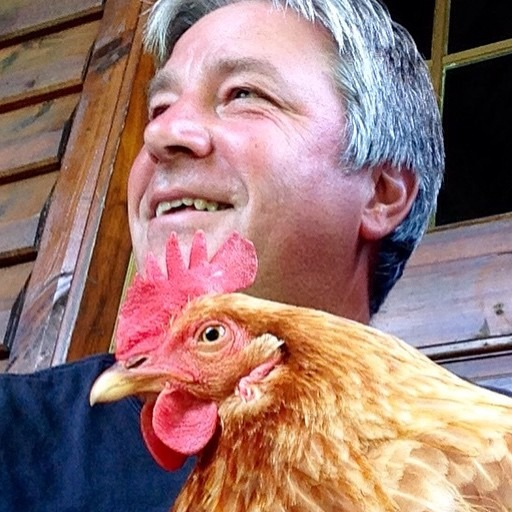
Chickenmethod.com

